In politics, strangely enough, the best way to play your cards is to lay them face upwards on the table.
- H. G. Wells
Scipios Gamble
The Roman Empire, by Wolfgang Schreier, Bonn 2003
Lucius Cornelius Scipio
After the devastating Battle of Mazana the Romans were once more determined to turn the war to their odds in 251 BC. The people of Rome elected Lucius Cornelius Scipio as consul, a man who had had many dealings with Sicily already and therefore knew the land and people. Scipio tried to break the deadlock with a swift and decisive push against Lilibeo like Maximus before him. Hamalcar the Younger faced the consul in the Battle of Lilibeo 251 BC. Scipio was a talented military leader and unlike Maximus 3 years earlier, he used the flexibility of his troops to his advantage. He won a solid victory over Hamalcar without destroying his army though.
Heavy cavalry attacking the Roman line.
Carthage had high quality mercaneries from around the world, but Scipios military competence prevailed in the battle.
Scipio won the battle because he used his cavalry wisely despite the difficult terrain. Here Greek mercenaries get caught in between a Roman maneuver.
But fortune turned against Scipio when he started to lay siege against Lilibeo, in the hot summer days a devastating plague broke out among the Romans, Scipio had to break off the siege and retreat. Nevertheless the victory over Hamalcar added much prestige to the Scipio family.
250 BC - Scipio retreats back to Messana after the plague.
Small skirmish, Roman Hastati facing spanish mercenaries fighting for Carthage.
For the next years the Punic war turned into small battles and skirmishes once again. Scipio remained head of the army in 250 BC as proconsul, when a year later he was elected censor and had to return to Rome for political duties. Hamalcar realised his chance and sent an army under his general Giscon to push for Messana. Giscon was a close friend of Hamalcar and the second in command of the Sicilian troops. When reinforcements under consul Caius Valerius Mas landed to support the troops in Messana, Giscon was outnumbered and decided to retreat to a safer position. The Punic war was still far from being over.
249 BC - Giscon attacking Messana
In 247 BC the Romans had not yet achieved any significant progress in Sicily. Both sides were equally strong and each offensive against the enemy stronghold was blighted by the fortunes of war. It was clear that the Romans had to do something more drastical to break the deadlock. Some Senators, among them was Lucius C. Scipio, spoke out for a landing in Africa.
Africa! Attacking a distant continent was something new to the Romans, who had mostly fought their wars on the Italian peninsula. But the people voted in favour for Scipio, who was elected consul a second time the following year. But to deceive the ambitious plans, Scipio went to Sicily to pretend another major push on Lilibeo. Meanwhile the second consul, Caius Aurius Cotta, a relative unknown plebeian with little military experience was charged with leading the fleet and the troops to Africa in 246 BC. This was quite a gamble, but Cotta was an ambitious man nevertheless, who wanted to live up to his duties.
247 BC - Cotta landing in Africa to the suprise of Carthage.
The fortune now turned in favour to the Romans, the Carthaginians had most of their troops in Sicily, since they feared Scipios attack. So when Cotta landed in Africa very little Carthaginian troops were stationed there. He quickly secured a port to get additional supplies and hasted to attack Carthage. The city was not prepared for a siege, despite its huge walls and enormous size. The council agreed to surrender, despite the fact that they were not beaten on the field. To defend Carthage the council would have had to order the troops in Sicily back, which would have left Sicily open for the taking anyway - plus the attack on the city of Carthage was a symbolic and military humiliation.
Cotta laying siege to Carthage - What a humiliation for the might Carthaginian Empire!
Carthage had to pay a large amount of money and agreed to give Sicily and Corsica to the Romans. Over all the war was won by a tricky yet successful military move. Carthage had to pay large quantities of money, but the military might was far from broken.
Rome dictates a harsh peace
For the Romans a peaceful and prosper time began with new trade routes to Sicily and Corsica. But Carthage was saw this peace as vile and shame – more conflict was bound to happen.





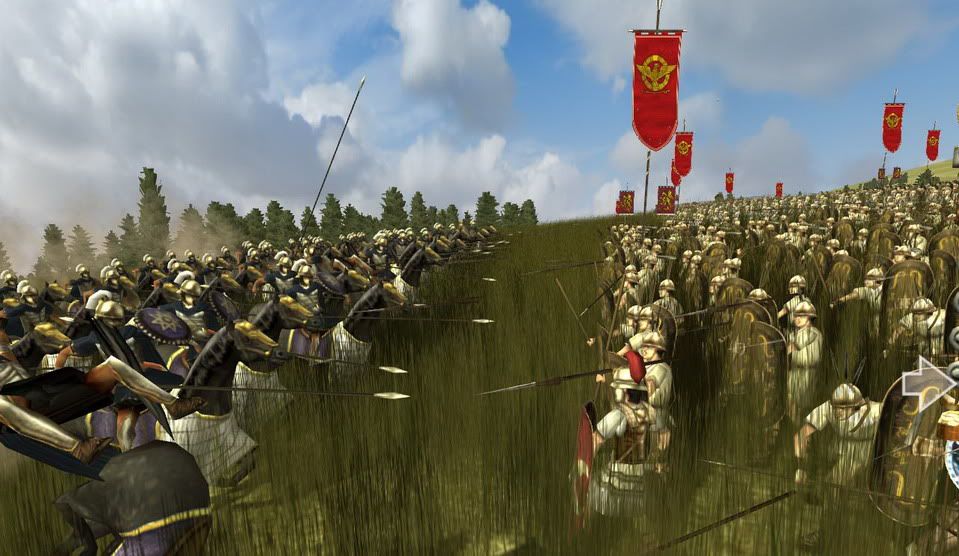
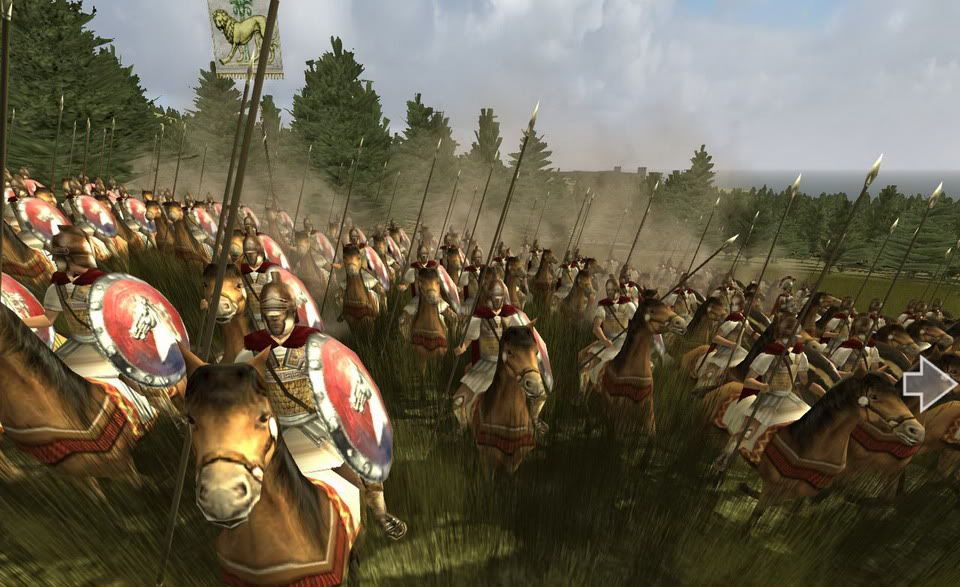
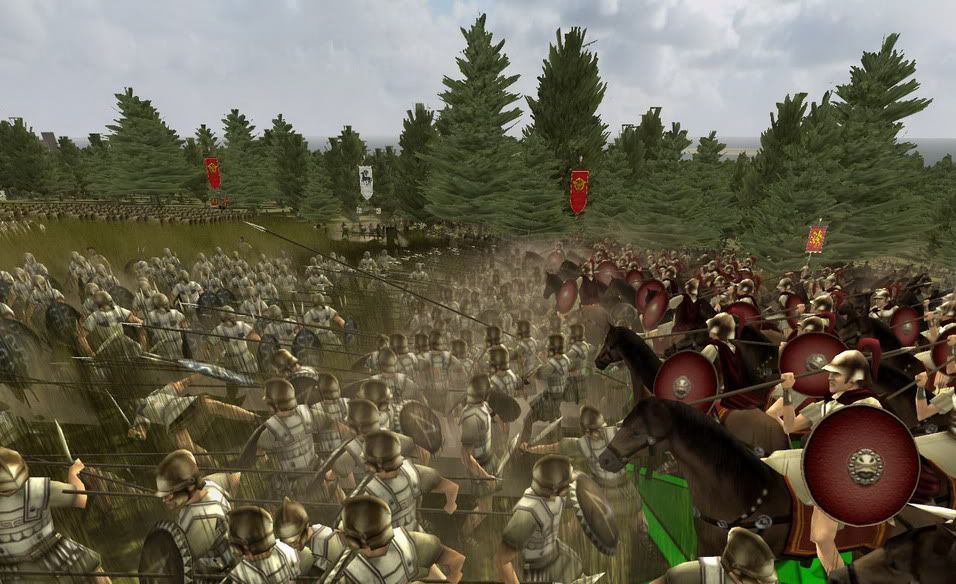

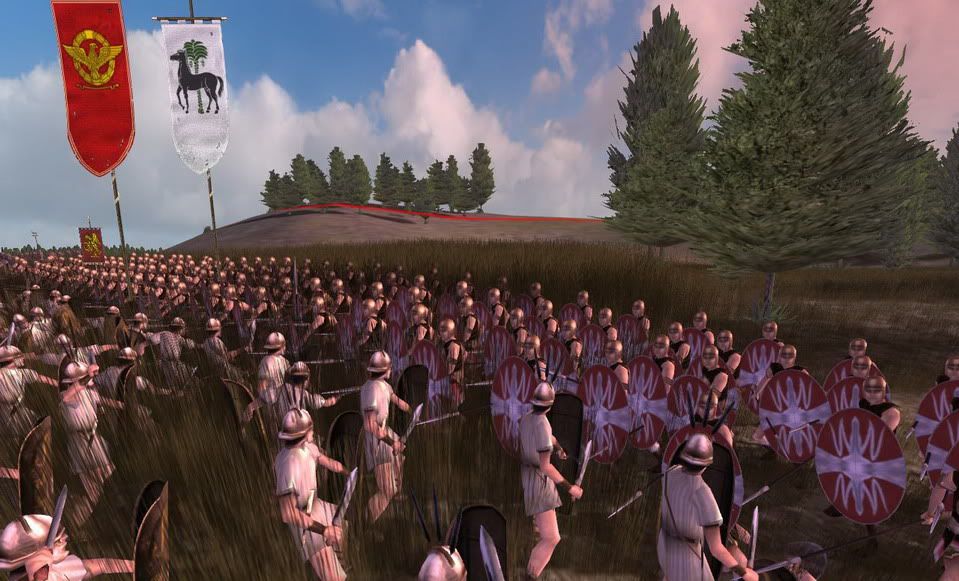



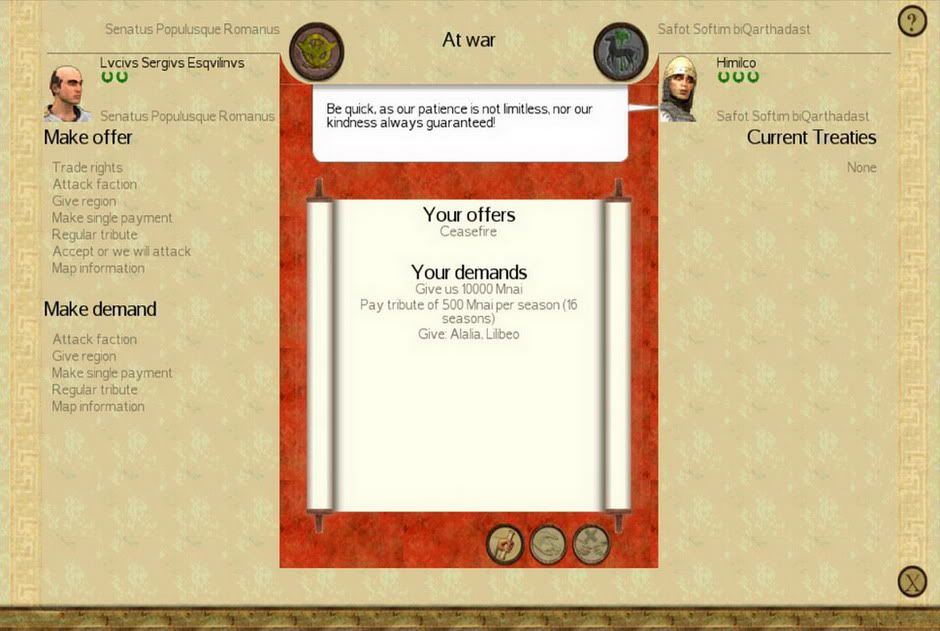


 Reply With Quote
Reply With Quote
Bookmarks